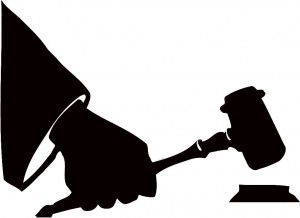By Goldman and Pease
Massachusetts Superior Court takes a bite out of a Board’s ability to treat fines for violations of restriction on the private use of units as “Common Expenses”.
 A recent Massachusetts Superior Court case, Trustees of The Beacon On The Charles Condominium Trust v. Bruce Adler, et. al. (“Beacon Case”), may drastically change the ability of a Board to treat fines for violations of restrictions on the private use of units as “common expenses,” unless the restriction is unambiguously incorporated into the By-Laws. While the Beacon Case dealt specifically with fines assessed against a unit owner regarding a dog which allegedly caused a nuisance by barking and howling in the unit, this decision could have far reaching effects on a Board’s ability to treat other types of fines arising out of offensive conduct which occurs strictly within a unit as a common expense. The Judge was also concerned about the large amount of fines and attorney fees for this matter in the context where a fair hearing with the Board did not occur.
A recent Massachusetts Superior Court case, Trustees of The Beacon On The Charles Condominium Trust v. Bruce Adler, et. al. (“Beacon Case”), may drastically change the ability of a Board to treat fines for violations of restrictions on the private use of units as “common expenses,” unless the restriction is unambiguously incorporated into the By-Laws. While the Beacon Case dealt specifically with fines assessed against a unit owner regarding a dog which allegedly caused a nuisance by barking and howling in the unit, this decision could have far reaching effects on a Board’s ability to treat other types of fines arising out of offensive conduct which occurs strictly within a unit as a common expense. The Judge was also concerned about the large amount of fines and attorney fees for this matter in the context where a fair hearing with the Board did not occur.
Fines for activity occurring solely in one’s unit and not in the common areas, such as smoking, offensive smells (i.e. spicy cooking), and hanging of offensive signs or flags in one’s window, may not be treated as “common expenses”, unless the rule restricting the alleged offensive activity occurring in the unit is unambiguously incorporated into the By-Laws or Declaration of Trust. Having the restriction in your rules and regulations may not be enough. The Beacon Court held that a clause in the By-Laws, generally adopting the Rules and Regulations, is not enough to unambiguously incorporate them into By-Laws.
 In the Beacon Case, a defendant unit owner (“Unit Owner”) owned a unit located in the Beacon on the Charles Condominium. Said condominium was governed by a Master Deed, By-Laws, and Rules and Regulations. The Rules and Regulations provided that a unit owner was prohibited from keeping a pet that the Trustees determined was a nuisance to others, and that unit owners were not to engage in “noxious” or “offensive” activities, including those that produced noise which was disruptive to other unit owners. In June of 2007, the Unit Owner rented the unit to a tenant (“Tenant”). The Tenant had a pet dog which lived with him in the unit. In May of 2009, the Trustees began formal notification to the Unit Owner that the Tenant’s dog was a nuisance. However, the Tenant and Unitowner vehemently denied the excessive barking and howling allegations and they were denied a due process hearing with the Board to defend themselves. The Board began assessing the Unit Owner with fines of $50.00 per day on October 8, 2009 for violation of the aforesaid Rules and Regulations. In May of 2010, the Tenant and his dog vacated the unit. The Trustees filed a lawsuit to enforce the fines and sought to enforce such fines as common expenses and to foreclose on the subject unit, if necessary , to obtain payment. The fines and attorney fees amounted to in excess of $22,000.00.
In the Beacon Case, a defendant unit owner (“Unit Owner”) owned a unit located in the Beacon on the Charles Condominium. Said condominium was governed by a Master Deed, By-Laws, and Rules and Regulations. The Rules and Regulations provided that a unit owner was prohibited from keeping a pet that the Trustees determined was a nuisance to others, and that unit owners were not to engage in “noxious” or “offensive” activities, including those that produced noise which was disruptive to other unit owners. In June of 2007, the Unit Owner rented the unit to a tenant (“Tenant”). The Tenant had a pet dog which lived with him in the unit. In May of 2009, the Trustees began formal notification to the Unit Owner that the Tenant’s dog was a nuisance. However, the Tenant and Unitowner vehemently denied the excessive barking and howling allegations and they were denied a due process hearing with the Board to defend themselves. The Board began assessing the Unit Owner with fines of $50.00 per day on October 8, 2009 for violation of the aforesaid Rules and Regulations. In May of 2010, the Tenant and his dog vacated the unit. The Trustees filed a lawsuit to enforce the fines and sought to enforce such fines as common expenses and to foreclose on the subject unit, if necessary , to obtain payment. The fines and attorney fees amounted to in excess of $22,000.00.
The Unit Owner filed a third party complaint against the Tenant, seeking indemnity from the Tenant.
The Trustees and the Unit Owner filed cross motions for summary judgment. The Trustees asserted in their summary judgment motion that fines imposed for a violation of the Rules and Regulations should be considered “common expenses” pursuant to G.L. c. 183A. The Court found that violations of rules and regulations may be subject to enforcement as a common expense pursuant to M.G.L. c. 183A, Sec. 6(a)(ii). However, G.L. c. 183A, Sec 11(d) states that rules and regulations may only apply to common areas of the building, and not to individual units. The Court also noted that G.L. c. 183A, Sec. 11 specifically states that restrictions on private use of units that are intended to prevent “unreasonable interference” with the enjoyment of other units shall be contained in the by-laws, rather than simply in the rules and regulations, in order to be valid and enforceable. The Court framed the issue in the case as “[W]hether the rules and regulations purportedly violated by the defendant are set forth in the by-laws of the condominium, and thereby [are] enforceable as a ‘common expense’ under G.L. c. 183A.”
 The Court held that in order for fines assessed for violations of rules and regulations to be considered “common expenses” and enforced as such, the rule or regulation in question must be “unambiguously” incorporated into the condominium by-laws. The Court further stated that the general adoption of the rules and regulations into the by-laws is insufficient to unambiguously incorporate them into the by-laws. Accordingly, the trial court dismissed the Trustees’ claims because no provisions in their By-Laws or Master Deed expressly forbid the type of conduct in private units that was the subject of this case. The Trustees initially filed a Notice of Appeal of this decision, but subsequently withdrew their appeal.
The Court held that in order for fines assessed for violations of rules and regulations to be considered “common expenses” and enforced as such, the rule or regulation in question must be “unambiguously” incorporated into the condominium by-laws. The Court further stated that the general adoption of the rules and regulations into the by-laws is insufficient to unambiguously incorporate them into the by-laws. Accordingly, the trial court dismissed the Trustees’ claims because no provisions in their By-Laws or Master Deed expressly forbid the type of conduct in private units that was the subject of this case. The Trustees initially filed a Notice of Appeal of this decision, but subsequently withdrew their appeal.
The important point for Boards to take away from this case is that if Boards have important rules and regulations prohibiting certain types of conduct inside one’s unit, and not just in the common areas, the Board should make sure that these prohibitions are unambiguously incorporated into the By-Laws if they want to treat fines arising out of the breach of these regulations as “common expenses”. This does not mean that the Board cannot fine unit owners for violations of rules and regulations that are not incorporated into the By-Laws, it simply means that the fines cannot be treated as “common expenses.” From the Board’s perspective, the Board would prefer to have fines treated as “common expenses” because common expenses have the additional benefit of requiring unit owners to pay the common expense in full prior to challenging the propriety of the assessment.
The problem that Boards may run into, however, is that the amendment process for the By-laws requires approval of such unit owners that comprise at least a 75% beneficial interest in the trust, while the Rules and Regulations may be amended by the Trustees alone.
Another important point for Boards to take away from this case is that Massachusetts Courts will not shy away from ruling against Boards in instances where the Court feels that the Board is being dictatorial and is levying excessive fines and fees without an adequate hearing for the accused.
Through Goldman & Pease LLC’s active involvement in the real estate, business, and litigation law sections of the Boston, Massachusetts, and Rhode Island Bar Associations, the CAI Attorneys Committee, REBA, and IREM, Goldman & Pease, LLC has demonstrated themselves to be on the forefront of changing condominium laws and cases, such as this one.
———————————————-
Contact the Massachusetts condominium attorneys at Goldman & Pease for a free initial and confidential consultation regarding your condo law legal matter.
The Massachusetts condominium lawyers at Goldman & Pease specialize in Massachusetts condo law and serve the greater Boston metro region including Alston, Arlington, Belmont, Brighton, Brookline, Cambridge, Canton, Dedham, Dover, Milton, Natick, Needham, Newton, Norwood, Waltham, Watertown, Wayland, Wellesley, Weston, West Roxbury, Westwood, and all of Massachusetts.

